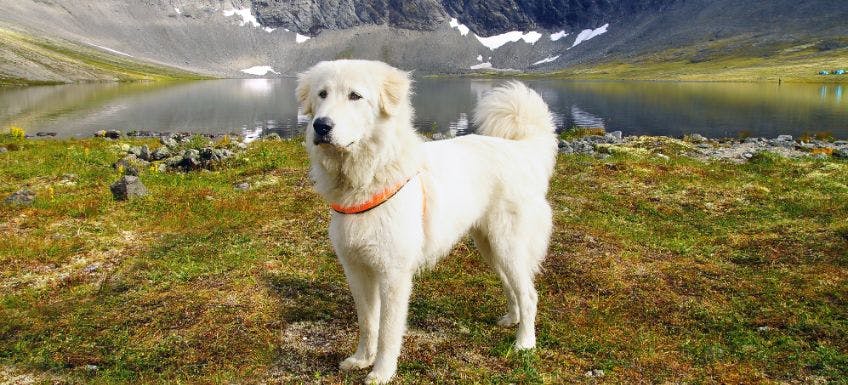
Great Pyrenees
Low Maintenance
Protective
Suited For Cold Weather
For Experienced Owners
Breed Snapshot
- Weight: 40–54 kgs
- Height: 70–82 cms
- Breed size: Large
- Lifespan: 10–12 years
- Dog breed group: Working dog
- Shed level: High
Description
The Great Pyrenees (also known as the Pyrenean Mountain Dog) has a well-feathered tail, a dense woolly undercoat, ,a long thick and flat outercoat and a mane around the neck and shoulders which is more pronounced in males.
Characteristics
Devoted, well-mannered, independent and gentle, the Great Pyrenees loves its family, is wary of strangers, is best with children when raised with them from a very young age, and can sometimes be hard to train.
Health problems
This breed is prone to bloat, hip dysplasia, bone cancer and luxated patellas.
Exercise
Great Pyrenees need at least one hour of exercise per day, which can be broken up into shorter walks or play sessions. They enjoy outdoor activities but can overheat due to their heavy coat. Mental stimulation is also important to prevent boredom and destructive behavior.
Grooming
Great Pyrenees have a thick double coat that requires weekly brushing to prevent matting and remove loose hair. They shed moderately throughout the year, but they have a heavy shedding season twice a year, during the spring and autumn. During these times, they may require daily brushing to keep their coat in good condition.
They should be bathed as needed, but not too frequently to avoid skin irritation.
Living Environment
This dog will do best with at least a medium-sized fenced backyard. It prefers cold temperatures.
Great Pyrenees FAQs
Are Great Pyrenees good family pets?
They're loyal and affectionate, which makes them great family pets. However, they might not be the best choice for families with small children or homes with limited space because of their size and protective nature.
Do Great Pyrenees bark a lot?
Pyrenees are known for being vocal and protective of their territory, so they may bark often to keep their family safe. Barking can be reduced with early socialisation and training.
Are Great Pyrenees easy to train?
Despite being independent and smart, Great Pyrenees can be stubborn and require firm training. Training can be easier and more effective with early socialisation and positive reinforcement.
Did you know...
In the past this breed has been used as an avalanche rescue dog, a cart-puller, a sled dog and a dog of war.